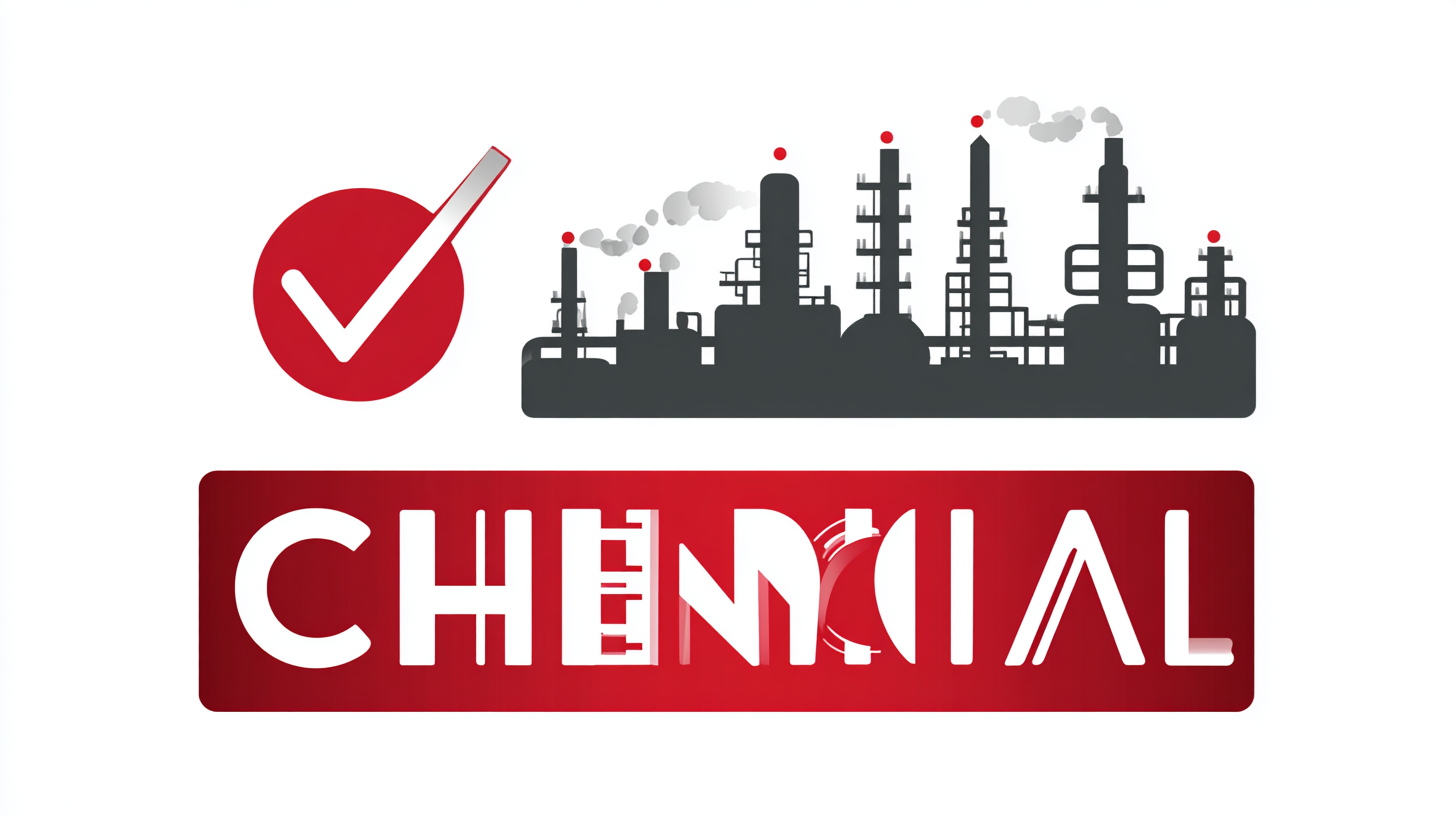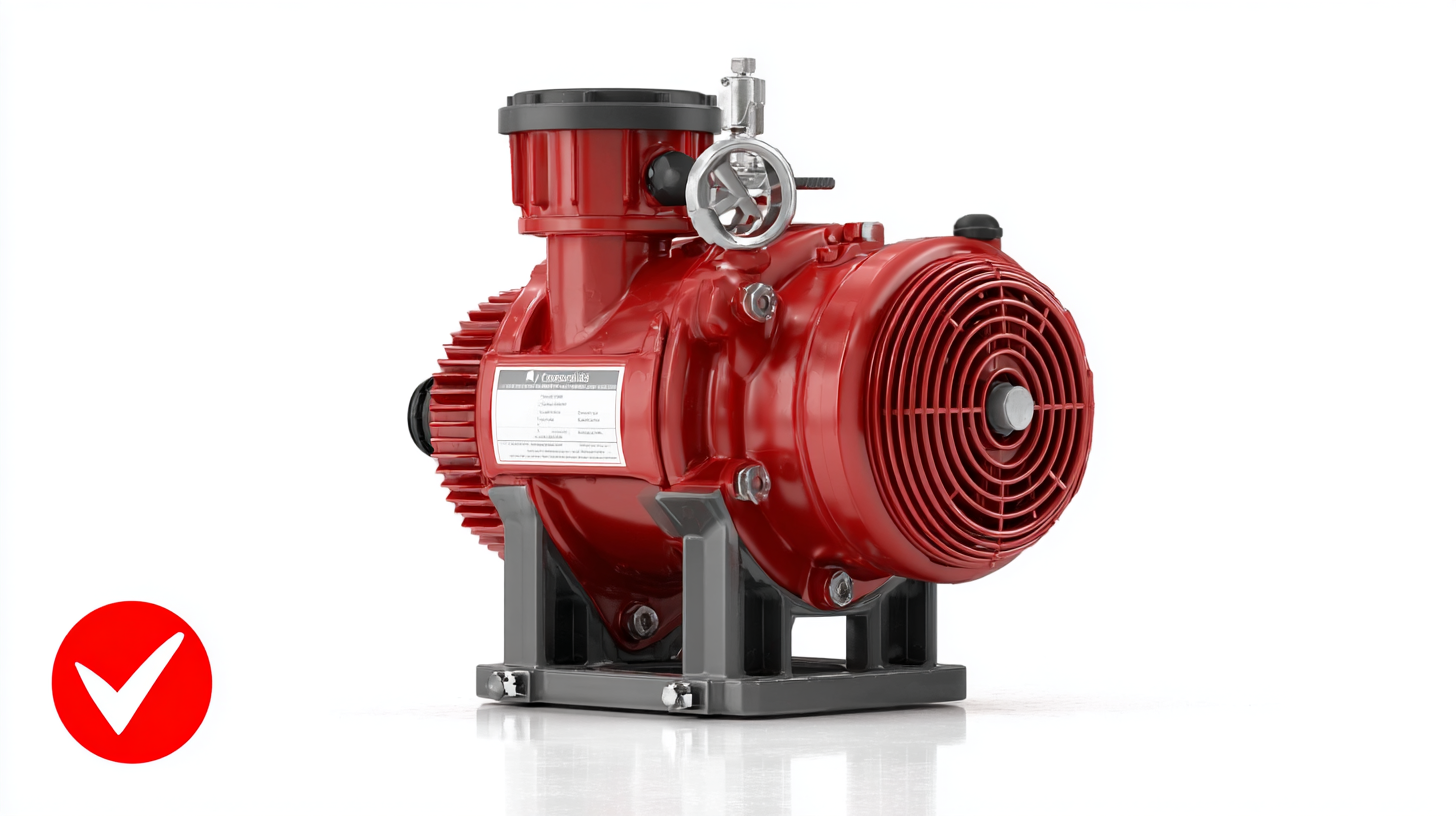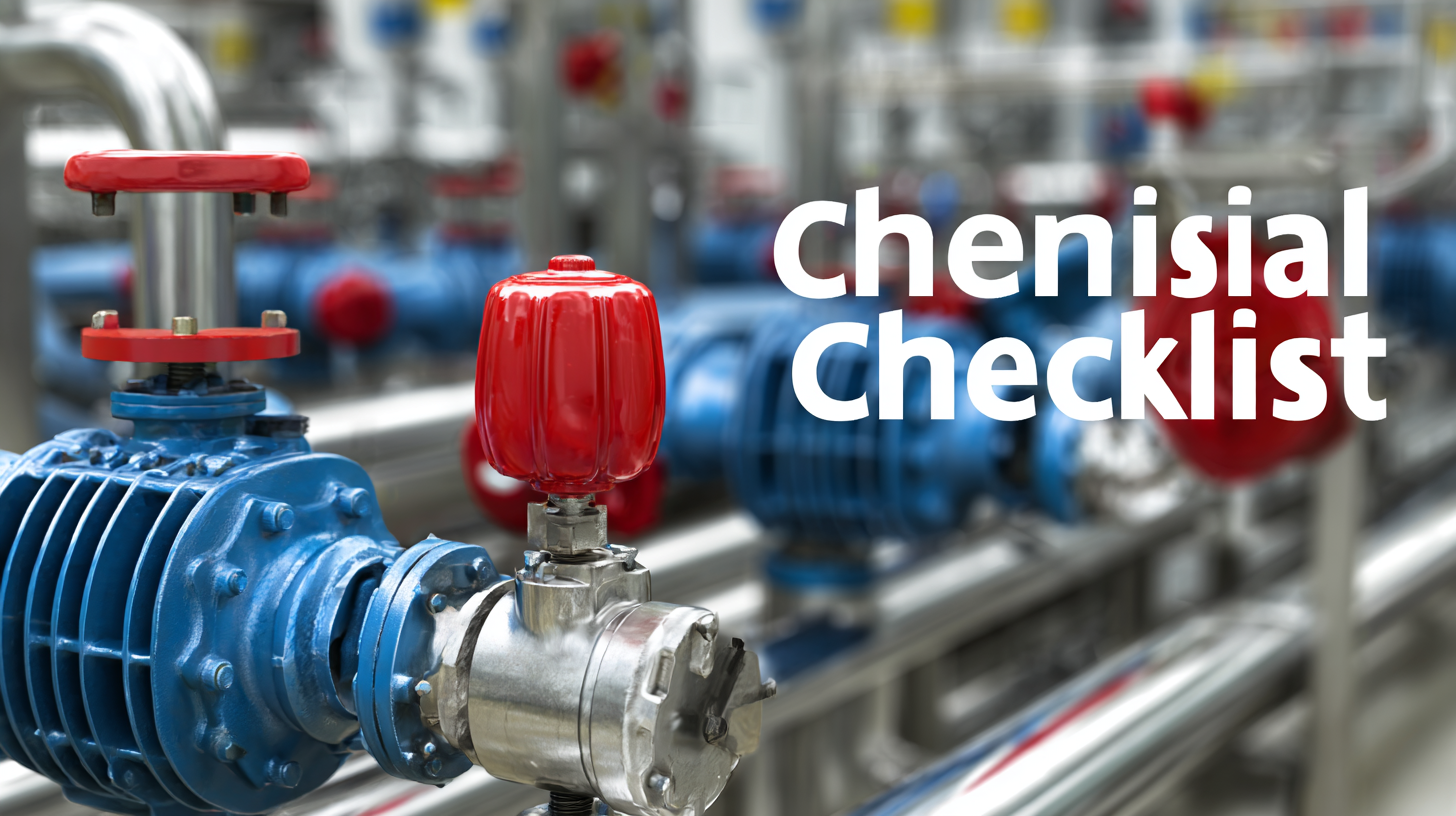

In the ever-evolving landscape of chemical manufacturing and processing, selecting the right equipment is crucial for operational efficiency and safety. A key component of this equipment is the chemical pump, which plays a vital role in the transport and management of various corrosive and hazardous materials. According to a recent report by Research and Markets, the global chemical pump market is projected to reach USD 7.9 billion by 2026, growing at a CAGR of 5.2% from 2021. This growth underscores the importance of sourcing high-quality pumps that meet industry production standards and regulatory requirements. As businesses strive to enhance their operational capabilities and maintain compliance, having a well-structured checklist for evaluating chemical pumps becomes essential. In this blog, we will delve into critical factors to consider when sourcing the best chemical pump for your business, ensuring not only performance but also safety and reliability.

When selecting chemical pumps for your operations, it's crucial to consider several key factors to ensure optimal performance and safety. One of the primary aspects to evaluate is the compatibility of the pump materials with the chemicals being handled. Different chemicals may react adversely with certain materials, leading to premature wear or contamination. Always refer to the manufacturer’s specifications to determine the best materials for your application.

Another important consideration is the pump's flow rate and pressure capabilities. Assess your operational needs and match them with the pump’s specifications. Pumps that cannot handle the required flow rates may lead to downtime or reduced efficiency in operations. For precise applications, it's essential to choose a dosing pump with adjustable flow rates to accommodate varying operational demands.
Additionally, consider the ease of maintenance and reliability of the pump. A pump that is easy to maintain will reduce downtime and ensure longevity. Ensure that the pump has accessible parts for service and that the manufacturer offers reliable support and replacement parts. These tips will guide you in sourcing the best chemical pump that aligns with your business operations effectively.
When sourcing the best chemical pump for your business, it's crucial to focus on specific features that enhance performance and reliability. First, consider the material of the pump. Pumps made from corrosion-resistant materials, like polypropylene or stainless steel, are essential for handling aggressive chemicals. This not only prolongs the lifespan of the pump but also ensures optimal performance even under challenging conditions. Additionally, look for pumps that offer adjustable flow rates; this flexibility allows businesses to cater to varying process requirements efficiently.

Another vital feature is the pump's sealing mechanism. Choosing pumps with robust sealing technology, such as double mechanical seals or magnetic drive systems, can significantly reduce leakage risks, enhancing safety and minimizing environmental impact. Furthermore, ease of maintenance should not be overlooked. Opt for chemical pumps that provide clear access to internal components, enabling quicker service and minimizing downtime. By prioritizing these top features, businesses can select high-performance chemical pumps tailored to meet their specific needs.
When it comes to sourcing the best chemical pump for your business, understanding the different types available and their specific applications is crucial. Chemical pumps are designed to handle a variety of fluids, including corrosive materials, and various types serve different industries. According to the "Global Chemical Pump Market Analysis" report by MarketsandMarkets, the chemical pump market is projected to reach USD 48 billion by 2027, reflecting a growing demand across sectors such as oil and gas, water treatment, and pharmaceuticals.
Centrifugal pumps, for instance, are widely used for their efficiency and ability to handle large volumes of fluid. They are ideal for applications in chemical processing, where continuous flow is necessary. On the other hand, positive displacement pumps are preferred for applications requiring precise dosing and higher pressures, making them essential for industries like food and beverages and water treatment. In a study published by Research and Markets, it was revealed that the positive displacement segment is expected to grow at a CAGR of 5.2% from 2020 to 2025, driven by advancements in technology and increasing regulatory standards for fluid handling.
Understanding these distinctions is vital for businesses looking to enhance their operational efficiency while ensuring safety and compliance with industry regulations. Selecting the right pump not only affects productivity but also impacts long-term operational costs and environmental sustainability.
| Pump Type | Description | Applications | Materials Handled | Flow Rate (GPM) |
|---|---|---|---|---|
| Diaphragm Pump | Positive displacement pump using a diaphragm to pump fluids. | Chemical transfer, wastewater treatment. | Corrosive substances, slurries. | 0.5 - 100 |
| Centrifugal Pump | Uses rotational kinetic energy to move fluids. | Recirculating, processing chemical solutions. | Water, acids, bases. | 1 - 3000 |
| Gear Pump | A positive displacement pump that uses gears to pump fluid. | Lubrication, fuel transfer. | Viscous fluids, solvents. | 0.1 - 500 |
| Peristaltic Pump | Pumps fluid through a tube by a series of rollers squeezing the tube. | Pharmaceuticals, food processing. | Biological fluids, chemicals. | 0.1 - 100 |
| Vacuum Pump | Removes gas from a sealed volume to create a vacuum. | Distillation, drying operations. | Gases, volatile substances. | N/A |
When sourcing a chemical pump, businesses often face the challenge of balancing quality with budget constraints. The initial price tag of a pump can be enticing, but opting for the cheapest option without considering long-term implications can lead to costly repairs, replacements, or inefficiencies. Therefore, it's crucial to evaluate the total cost of ownership, which includes maintenance, energy consumption, and potential downtime. A more reliable unit may require a larger upfront investment but can save money in the long run through reduced operational costs and increased productivity.
Additionally, businesses should assess their specific needs against the capabilities of various pump models. Factors such as fluid compatibility, flow rate, and operational environment all play a vital role in determining which pump will perform best for your application. Investing in a quality pump that meets your operational demands can help mitigate risks associated with pump failure and unforeseen operational issues. By striking the right balance between quality and cost, companies can ensure that they choose a chemical pump that supports their operations efficiently and effectively, thus maximizing their return on investment.
When it comes to chemical pumps, maintenance is paramount to ensure longevity and optimal performance. According to a report by the Hydraulic Institute, regular maintenance can increase a pump's operational lifespan by up to 30%. This statistic underscores the necessity for businesses to establish a maintenance schedule that includes routine inspections, cleaning, and parts replacement. Regular checks on seals and bearings, for instance, can prevent costly downtimes and keep the pump functioning smoothly.
Moreover, understanding the chemical compatibility of the pump materials is crucial. A study by the Chemical Pump Association indicates that nearly 30% of pump failures are due to the chemical attack on pump components. To mitigate this risk, operators should reference detailed chemical compatibility charts before selection. Additionally, lubricating the pump components with appropriate oils and fluids not only enhances efficiency but also prolongs the lifespan of critical parts. By adhering to these maintenance tips and leveraging industry data, businesses can maximize the performance and durability of their chemical pumps.
This chart illustrates the maintenance frequency for various chemical pump components, showcasing how regular upkeep can extend their lifespan.
Copyright © 2023 TUF Pump Industry (Jiangsu) Co., Ltd. - Stainless Steel Centrifugal Pump, Chemical Pump, Metering Pump - All Rights Reserved.